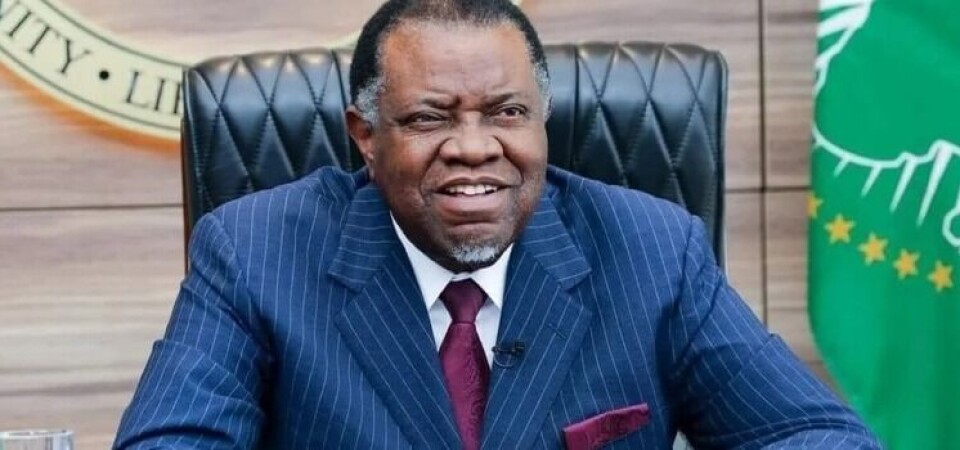Copyright : Re-publication of this article is authorised only in the following circumstances; the writer and Africa Legal are both recognised as the author and the website address www.africa-legal.com and original article link are back linked. Re-publication without both must be preauthorised by contacting editor@africa-legal.com
Geingob’s legacy to Namibia’s legal system

As news of the passing of Namibia’s third president, Dr Hage Geingob, settles in, a picture of his legacy is emerging, starting with the swift and smooth transition of power thanks to the constitution he helped draft and implement. Fedden Mukwata takes a closer look at the late president’s legacy to the country's laws.
Mukwata takes a closer look at the late president’s legacy to the country's laws.
President Geingob often delivered keynote speeches at official functions, where he spoke directly about the law to the legal profession and the nation at large. His last such address was on 8 February 2023 where he made the following concluding remarks:
“The English philosopher Jonathan Sacks once said, and I quote, ‘True freedom requires the rule of law and justice, and a judicial system in which the rights of some are not secured by the denial of rights to others.’ In the Year of Revival, let us endeavour to ensure that justice is not only a reality for a few but a reality for each and every Namibian. We should strive not only to ensure a swift delivery of justice, but also a fair delivery of justice so that Namibians from all walks of life can have faith in a justice system that caters to all, cares for all and offers protection to all. In so doing, we will take yet another step forward in our march towards becoming a truly prosperous nation.”
Geingob lived his life endeavouring to ensure those very considerations became reality, and those of us left behind are grateful for his legacy.
A large part of Geingob’s legacy is the impact he had on Namibia’s constitution as chairman of the Constituent Assembly which drafted the Namibian constitution at the dawn of independence in 1990. Geingob subsequently went on to become Namibia’s prime minister on two occasions and president for two terms, allowing him to play a direct role in the formulation and implementation of Namibian laws.
As the chairperson of the Constituent Assembly, he led a team of Namibians which was mandated to hammer out and adopt “in a spirit of compromise, a spirit of give and take”, a constitution that would launch our country and people into nationhood. On 4 February 2024, just hours after Geingob’s passing, we witnessed that constitutional masterplan enabling a smooth legal transition of power, but that was only one of his gifts to Namibia’s legal system.
Just months after his inauguration in 2015, Geingob signed into law the Judiciary Act, 11 of 2015 which gave meaning to Article 78(5) of the constitution by establishing an administratively and financially independent body of the judiciary, separating it from the Ministry of Justice which belongs to the executive branch of government. This went a long way towards entrenching the independence of the judiciary.
Other significant pieces of legislation Geingob signed into law included the Virtual Assets Act, 10 of 2023, a groundbreaking piece of legislation aimed at regulating the use and exchange of virtual assets, and the Magistrates Courts Amendment Act, 18 of 2023, which seeks to protect homeowners from repossessions.
A champion of the law has fallen, but the law remains forever.
To join Africa Legal's mailing list please click here
